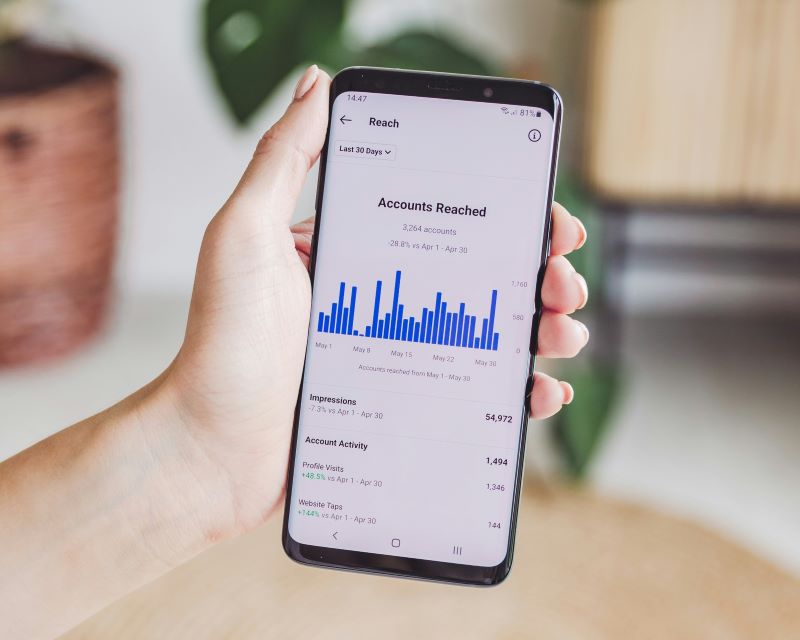Digital Marketing Consultants SEO jargon buster

They say that using overly complex words just makes the person using them look ‘more stupider’ (pun intended!).
This research that supports the statement above is summed up nicely in this quote from Princeton psychologist Danny Oppenheimer…“People can rate something as very intelligent if it has long words in it, but if you use simpler language, they rank it as even more intelligent,” he said.
As a marketing consultant, I help clients decode ‘marketing speak’ spoken by other service providers and ensure they don’t have the wool pulled over their eyes. And this includes when one of the most common digital marketing acronyms is pulled out… “SEO”.
If more digital marketers took psychologist Danny’s tip and used plain and clear language, not only would their clients benefit, they would appear smarter themselves!
These acronyms can be deliberately dropped into nearly every sentence by the type of service providers that are regularly spamming the inboxes of business owners. I’m sure you’ve encountered them if you are a business owner…often they are located off-shore and promise that your business can be on page #1 of Google in no time. They are persistent in trying to persuade you to part with your money and enter a world where you feel ‘bamboozled’ by their choice of words.
Starting with the basics, here are a couple of FAQs about SEO terminology to empower you to ask the right questions and keep digital marketing service providers accountable:
What is SEO?
SEO stands for search engine optimisation. In a nut shell, there are a range of techniques that can be applied in your online marketing that will help search engines, such as Google, present your website as an option to click on for someone searching for the type of products/services you provide. The better you rank on a search engine, the sooner your website (or web page) will be discovered because the search result listing will be on or closer to page 1 of the search engine results (not many searchers go past page 2).
Knowing about and applying techniques that improve your search engine ranking (i.e. optimise) is a way to get ahead of your competitors because a key part of attracting leads in marketing is creating awareness. If your business or service cannot be discovered, awareness will naturally be low.
Many of the techniques used in SEO are completely free (e.g. ensuring you are regularly adding new content to your website), however, experts in this area of marketing will often use paid tools to enhance their ability to help your website climb the search rankings. Their fees recoup the cost of those tools along with their advice and services. A DIY effort to improve SEO, whilst cheaper, may be slower because of the learning curve involved and the lack of specialist tools. If you are going to outsource this task to SEO specialists, be careful and screen them in the same way you would for anyone applying for a job. Identify your criteria, set goals, communicate your expectations, monitor closely and above all else, don’t be afraid to ask questions, even if they feel like dumb questions.
How do my website and web pages get a ranking on a search engine?
No doubt you have heard of the “Google algorithm”. An algorithm is a scoring system that contains a lot of different variables that are taken into account before determining the score. The scoring is updated regularly through a process of “indexing” your website.
A web page is indexed by Google if it has been visited by the Google crawler ("Googlebot"), this involves it being analysed for content and meaning, and stored in the Google index. Over time the types of things that positively impact the score have evolved as the algorithm is regularly tweaked. For example, at one stage the algorithm started to favour websites that are clearly ‘local’ to the person searching – it had previously been part of the scoring system but this aspect was given more importance.
The fact that the algorithm is dynamic and not published somewhere for business owners to see has added mystery and complexity to the topic. However, you don’t need to be a rocket scientist to get the basic concept of how it works, because the algorithm has been designed to make browsing and searching online a more enjoyable and effective experience for users like you or me. So, if you think about what’s important to you when searching websites, then it’s likely important to the algorithm too. Mainly, we want relevant, convenient search results that prioritise authentic, quality content, that is quick and easy to use.
Tips to consider when updating content on website
Here are a couple of things for you to consider when publishing content online or adjusting your metadata (the title, description and keywords that you set up on the content management system of your website):
- Are the words used on your website relevant to the nature of business that you are in? Search engines want to make sure that people are presented with search results to click on that are relevant to their search intention. High bounce rates (where people immediately click away from your website) are a red flag for search engines and will drag your ranking down
- Are you ‘front loading’ your text with the key phrases to make it easier for Google bots to crawl your site and assess the relevance of content? This means placing your key phrases at the start of sentences or passages of text. There are search engine simulator tools available online that show you how the engines “see” a web page and the bots are getting closer to how a human reads a website all the time. If you are curious, search up a free ‘search engine simulator tool‘ and enter your website address to see content displayed exactly how Google would see it!
I appreciate that there may be some jargon used in this article, such as ‘keyphrases’, that were not defined or explained here, however, there is too much to cover all at once. Feel free to ‘Google’ any terms you are not familiar with or stay tuned for future jargon-buster articles as I aim to demystify these important marketing matters! You can subscribe to my e-news here and to find out more about digital marketing consulting services, get in touch.


